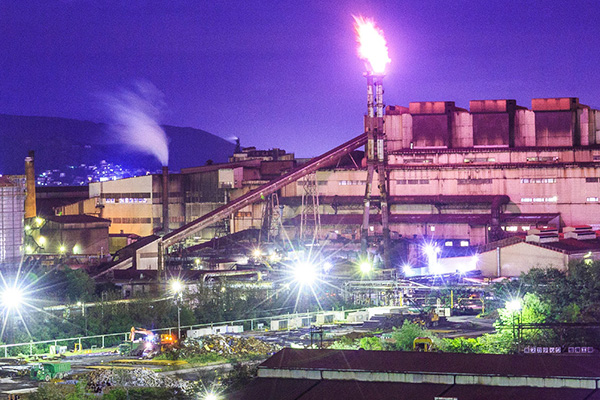Production Systems Engineering

We will tackle a wide range of subjects, from fundamental technologies such as materials, machinery, and physical engineering required for "manufacturing (=production)" to advanced system technologies such as aerospace aircraft and next-generation robots.
Educational objectives of the major
By promoting and integrating basic research in aerospace vehicles and next-generation robots, which are the result of the integration of system technologies, the mechanical engineering field that supports them, and the materials engineering and material science fields required for the creation and development of advanced materials, we aim to develop systems and elemental technologies that go beyond conventional frameworks and thereby cultivate creative human resources who can contribute to solving increasingly complex issues, such as environmental problems and energy measures.
Department Overview
The Department of Production Systems Engineering has a common foundation of "manufacturing" and "production systems," and aims to provide students with an in-depth education in advanced systems technology in various fields, such as aerospace aircraft and next-generation robots, as well as elemental engineering technologies in mechanical engineering, condensed matter physics, and materials engineering, from the basics to applications. For this reason, the Department's educational program first teaches the most universal and fundamental technologies related to manufacturing, such as an overview of the main major common subjects and information technology, and also provides students with an in-depth education in specialized subjects in each course, as well as specialized knowledge and research methods in mechanical engineering, robotics, aerospace systems engineering, condensed matter physics, and materials engineering. This will foster highly specialized professionals who have the ability to contribute to the creation of systems and the development of elemental technologies that go beyond traditional frameworks, and who can solve a variety of increasingly complex social issues, such as environmental problems and energy measures, and contribute to building a sustainable and resilient society.
Course Overview
Mechanical Robotics Course
We aim to develop talented people who will be involved in the development of new manufacturing industries and the creation of intelligent mechanical systems, using a wide range of knowledge and flexible application skills related to science and technology in a wide range of mechanical fields, with a focus on machines and robots, and who will be able to utilize advanced specialized knowledge in environmental and energy technology, materials and manufacturing technology, mechanisms and control technology, mechatronics and sensing technology, and systems and engineering design, with a view to realizing a sustainable society and responding to digital technology-driven reforms.
Therefore, the course curriculum provides a systematic way to acquire specialized knowledge in mechanical engineering and robotics. By deepening understanding of fundamental subjects such as Thermodynamics, Fluid Mechanics, Mechanics of Materials, Mechanical Mechanics, and Intelligent Robot Systems, students also acquire problem-solving skills in the fields of mechanical science and engineering, robotics, and production engineering by taking a variety of applied subjects in the area subjects.
Aerospace Engineering Course
Aerospace systems engineering is a core technology field that responds to the national technology strategy aiming to develop the space industry by realizing a future space transportation system and to form a new space transportation market. It is a field that realizes advanced and comprehensive systems that integrate a wide range of cutting-edge technologies such as aerodynamics, propulsion engineering, structural and material engineering, guidance and control, electricity, electronics and communication in harsh environmental conditions not found on the ground. With the establishment of a specific aerospace system in mind, students will gain a comprehensive and comprehensive understanding of the interrelationships between systems and elemental technologies, acquire basic knowledge of each elemental technology, and acquire the ability to build advanced systems by making full use of information and data processing technology. Furthermore, in order to train highly specialized engineers and researchers who will be a global force, we work with institutions such as JAXA and private companies, and take advantage of the geographical advantage of Hokkaido, and open up a wide range of career paths and develop practical human resources through cutting-edge research education through coursework that utilizes various research facilities inside and outside the university, such as the Aerospace Plane Systems Research Center.
In addition to the five fields mentioned above, the course curriculum includes systematic acquisition of knowledge of information and data processing technology, from the basics to systems. By deepening understanding of the basic subjects in the core subjects group and at the same time taking applied subjects in the area subjects group, students will develop problem-solving skills and the ability to view systems in the fields of aerospace systems engineering and production engineering.
Physical and Material Science Course
As we seek to solve environmental and energy problems and realize a sustainable society, technological innovation through material science has the potential to fundamentally solve these problems. In this course, students will systematically acquire specialized knowledge of condensed matter physics and materials engineering related to electronic functional materials such as magnetic materials, dielectric materials, superconductors, and optical materials, and various structural materials, which underpin today's industrial technology. We aim to develop talented people who have the knowledge to develop next-generation advanced materials that lead to new materials and technological innovation, and who have the ability to analyze and solve advanced problems and a high level of problem awareness.
The course curriculum is made up of core subjects related to condensed matter physics and a group of applied subjects. By taking these subjects, students will develop problem-solving skills in the fields of physical materials and production engineering.
Useful links
- Entrance Examination Information
- Lesson plan (syllabus)
- Employment Information
- Researcher data and research seeds
- access
- Campus Map
Update date: January 30, 2024
Prepared by: General Affairs and Public Relations Division, General Affairs and Public Relations Section

